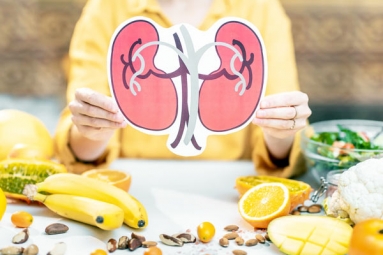
(Image source from: Canva.com)
Everyone has probably heard that drinking green tea can help you lose weight. The connection between green tea and weight loss is widely accepted, whether on social media, in advertising or in casual conversation. But is this actually the magic solution that is being advertised? The truth behind green tea's so-called weight loss benefits is unclear, misleading, and overstated at best (it's about time). Green tea's rise to diet stardom didn't happen overnight. It started with research showing that tea contains catechins, an antioxidant thought to boost metabolism. Marketers quickly embraced the idea and it wasn't long before green tea became synonymous with weight loss. But most people missed the subtleties. As previously mentioned, green tea's effects on metabolism are minimal, temporary, and often exaggerated.
Green tea helps with weight loss, but its effects vary greatly depending on a person's lifestyle and exercise habits. It has moderate effects, primarily increasing metabolism, suppressing appetite, and increasing satiety (feeling of fullness). In addition, it breaks down fat in the body. However, relying solely on green tea for weight loss is not effective. For optimal results, you should combine lifestyle changes with regular exercise. The timing and pattern of consumption also influence effectiveness. Green tea is part of a broader approach to health. Fat loss is not due to consumption or avoidance of specific foods, but rather depends on the individual's overall lifestyle and calorie balance. The only way green tea can help with any fat loss is to use it instead of regular tea, i.e. h. without milk or sugar, which helps reduce your calorie intake.
It stimulates the metabolism for a few minutes, which is very short. You will only notice the difference if you are eating right. When following a diet, it is not only about saving calories, but also about the quality of the food you eat. Allied Market Research reports that the green tea market was valued at $14.8 billion in 2021 and is expected to reach $29.3 billion by 2030, growing at a CAGR of 8.04% between 2022 and 2030. The engine of growth is the demand for health-enhancing drinks. But let's give credit to smart marketing. Brands are positioning green tea as a symbol of health, using it in everything from nutritional supplements to skin care products. However, most of the "evidence" comes from small, poorly controlled studies or animal experiments, yet the hype continues because quick fixes are being sold. There is no denying that green tea has a beneficial effect on health, but marketing it as a superfood is problematic.
The benefits of EGCG in green tea have been extensively researched, but the evidence is still inconclusive. To date, research has not provided sufficient evidence that it detoxifies the body, treats disease, or promotes longevity. Although green tea is often marketed as a weight loss elixir, its benefits go far beyond removing stubborn fat. Oxidative damage caused by free radicals causes cancer, clogged arteries and accelerates aging. Green tea, rich in antioxidants such as EGCG (epigallocatechin gallate), combats this. Green tea is not the villain here, nor does it deserve to be. The real culprit is the marketing hype that has changed our perception of the drink. Although green tea has health benefits, it is not a panacea for weight loss. True health comes from a balanced diet, regular exercise and a balanced lifestyle.















